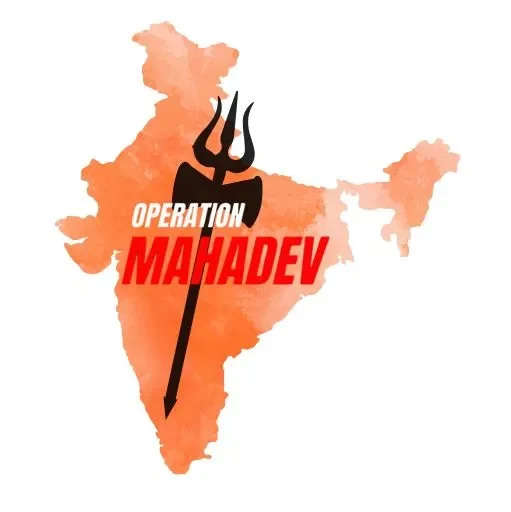When India named its high-stakes counter-terror mission “Operation Mahadev”, it wasn’t a coincidence it was a deliberate invocation of divine justice, territorial pride, and cultural power. Conducted on 28 July 2025, the operation that neutralized the three Pahalgam attack masterminds wasn’t just a tactical military maneuver it was a symbolic act designed to resonate deeply with India’s people, armed forces, and its historical conscience.
The Name “Mahadev”: God of Destruction and Justice
The name Mahadev, meaning “Great God”, refers to Lord Shiva, the destroyer of evil in the Hindu trinity. Shiva is often depicted meditating in the Himalayas his abode closely associated with Kashmir’s sacred geography. In mythology, Mahadev represents both calm and fury, the protector of the innocent, and the annihilator of demons.
By naming the operation “Mahadev,” Indian forces tapped into a spiritual narrative one that symbolized not just retribution, but righteous vengeance. It sent a clear cultural message: this mission wasn’t driven by emotion, but by dharma (righteous duty). The operation’s name turned it from a counter-insurgency event into a nationally understood act of moral justice.
Geographic Resonance: The Mahadev Peak of Pahalgam
Beyond religion, Mahadev is also the name of a revered peak in the Pahalgam region of Kashmir, located near the site of the original terror attack. The peak, visible to pilgrims during the Amarnath Yatra, is a symbol of peace, elevation, and spirituality.
This geographical connection elevated the symbolic weight of the mission. Executing the operation near this terrain implied restoring sanctity to a desecrated space. The land, once stained by bloodshed, was reclaimed through justice near a mountain long seen as holy. In military briefings and public sentiment alike, this symbolism provided emotional closure.
Cultural Messaging: More Than Just a Codename
In a landscape where military operations are often tagged with neutral or cryptic names, “Operation Mahadev” stood out. It wasn’t sterile it was deliberately evocative. This served several purposes:
- Mobilizing public emotion: The name instantly connected with millions of Indians, cutting across regions and religions. It framed the mission as part of a larger civilizational battle against evil.
- Boosting soldier morale: For troops on the ground, invoking Mahadev implied divine backing. In many army regiments, Lord Shiva is revered as a symbol of strength and destruction of injustice. The name boosted psychological unity and spiritual grit.
- Messaging to adversaries: In choosing a name associated with unforgiving divine power, the operation also functioned as psychological warfare a reminder that India’s responses are not just strategic, but deeply rooted in resolve and history.
Symbolic Triad: Name, Terrain, and Timing
The operation’s name, location, and moment in history formed a symbolic triad:
| Aspect | Details |
|---|---|
| Name | “Mahadev” invoked Shiva, destroyer of darkness |
| Terrain | Conducted in the spiritual backdrop of Kashmir, near Shiva’s mythological domain |
| Timing | Executed just before the final stretch of the Amarnath Yatra, reinforcing protection of faith and territory |
Together, they turned a tactical mission into a national moment of moral reckoning.
Operation Mahadev in Public and Military Memory
Since its execution, Operation Mahadev has been widely referenced in speeches, tributes, and defense circles not just as a successful anti-terror operation, but as a moment of symbolic restitution. Citizens viewed it as divine justice. Military analysts called it a “spiritualized doctrine of national defense.” Political leaders highlighted it as the embodiment of New India’s inner strength spiritual and sovereign.
The name Mahadev transformed what could’ve been a forgotten codeword into a lasting cultural artifact one that will now live in military memory alongside names like Balakot and Kargil.
Conclusion: “Operation Mahadev” wasn’t just about eliminating three terrorists it was about reclaiming honor, faith, and peace through a name that echoed across temples, terrain, and the tricolor. It fused strategy with symbolism, military strength with moral clarity, and geopolitical resolve with civilizational consciousness. In every sense, Mahadev Shiva the destroyer was invoked not only in spirit, but in action. The operation reminded a nation that its defense isn’t just on maps and borders it’s also etched in its culture, soul, and history.
Disclaimer: The insights in this article are based on verified military briefings, cultural references, and public domain analysis as of July 2025. Interpretations of symbolism may vary based on regional, spiritual, or personal beliefs.
Also Read This: The headlines today cover a wide range of interests, from career to technology and sports. Aspirants are closely following updates on NIACL recruitment exams, while in the tech world, Apple’s upcoming AirPods Pro 3 and the sleek new iPhone Air are generating huge excitement. On the sports front, cricket matches continue to capture massive attention, with live broadcasts on Star Sports and digital streaming on SonyLIV keeping fans engaged. Together, these updates in jobs, technology, and sports are shaping some of the most talked-about topics right now.

